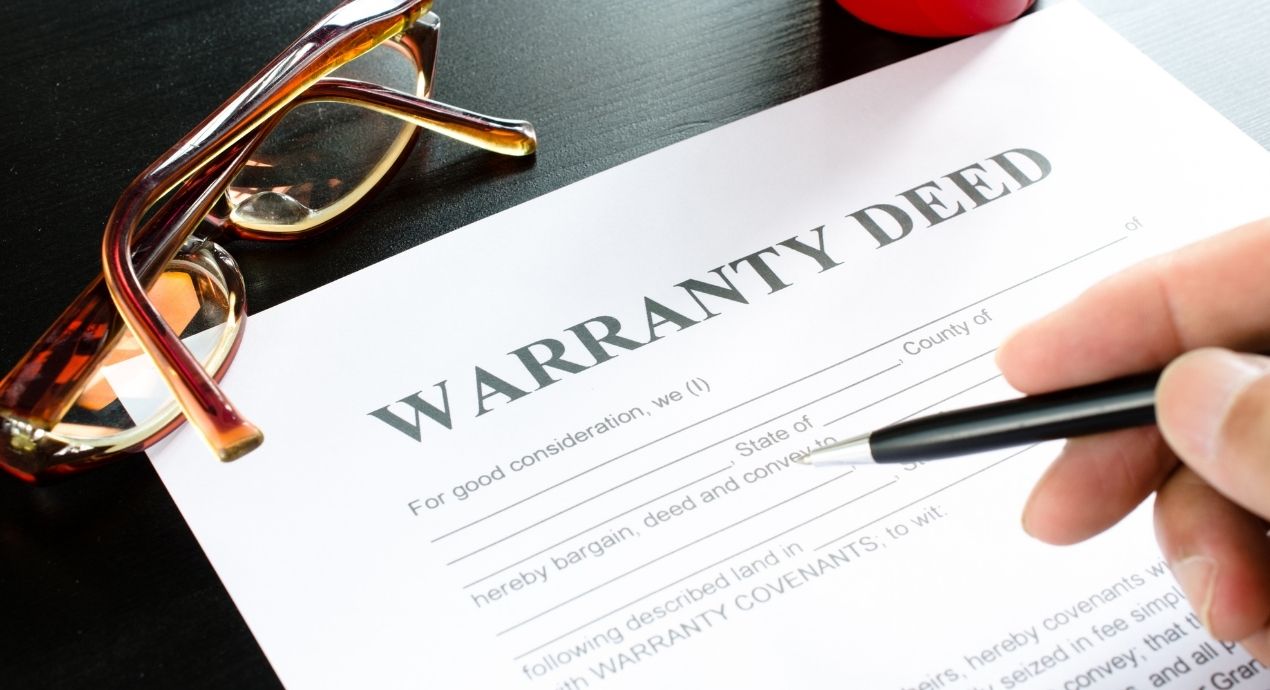
Contemplating coverage?
Subscribe to receive our emails & get
$200 OFF!
Have questions?
Call us: (833) 544-8273


Written By Erin Easley
When you buy a home, you sign a lot of documents. The Book “War and Peace: has fewer pages, or so it feels like it anyway. And within all those pages is the warranty deed which is stating that the current property owner is giving you the title as the new owner.
After your closing process when all this paperwork is signed, the Warranty Deed is sent to the county to be recorded in the official records as is the deed title.
There's a reason Liberty Home Guard was rated the #1 Home Warranty Service by U.S. News and World Report for 2021, 2022, 2023, and 2024. Check out our services.
Learn MoreThere are many important factors covered with this document for the new owner. A home warranty deed is proof of who the legal owner is, and the previous owner is declaring and warrants that there are no other claims or to the home or property, nor any liens on the home or property by other parties.
Should the previous owner conduct a breach of the property warranty deed, that person will be held responsible to settle those claims or liens. They will also be responsible to pay the new owner compensation.
When the warranty deed document is completed and the home or property is successfully transferred into your name, you then have all the necessary documentation in place and be able to assert your ownership in defense against any third-party claim.
A house warranty deed provides you or any interested party valuable information such as the following:
While there is a lot of paperwork in the process of buying a house, it is important to read the home warranty deed carefully, making sure all the details are correct. Any errors in this document that are missed during the closing process and create headaches and major problems later.
There are different property types and they are identified differently based on where the property is located. A property can be warrantied in different parts and the remaining property is warrantied in a different manner and process.
The most common warranty deed will define the person that is transferring the deed and what they are transferring. It will state who the grantor and the grantee in legal names and the grantees will state how they are assuming the title, i.e. the usual title assumption will look something like “Jane Doe, a Single Woman.”
The property that is being sold/purchased is the “what” in this document and the address of the property is used to describe it, which will be the same information shown on the original deed.
The “consideration” stated in the document is the money that is exchanged between the buyer and the seller is stated by the amount exchanged.
All property warranty deeds are filed with the county in the recorder's office and is a legal document that instructs the county to change the names on the official title deed from the previous owner to the new owner. The new owner will need to file for any exemptions they are qualified for on their property taxes, such as Homestead, Senior Citizen, Blind, Veteran, etc.
Warranty deeds are notarized when it is filed with the county and in most cases, any cost for that is added into the money exchanged at closing. This is a legal binding document that is irrevocable.
At any time during the process of buying a home, your realtor or mortgage specialist can explain this document to you and answer any questions you may have. A home is one of the most expensive things you'll purchase and you should take the time to know what you are getting with each document of this purchase.
Stay Ahead of Potential
Home Mishaps!
Subscribe to our Liberty Home Guard Newsletter and gain access to exclusive content that ensures your peace of mind.